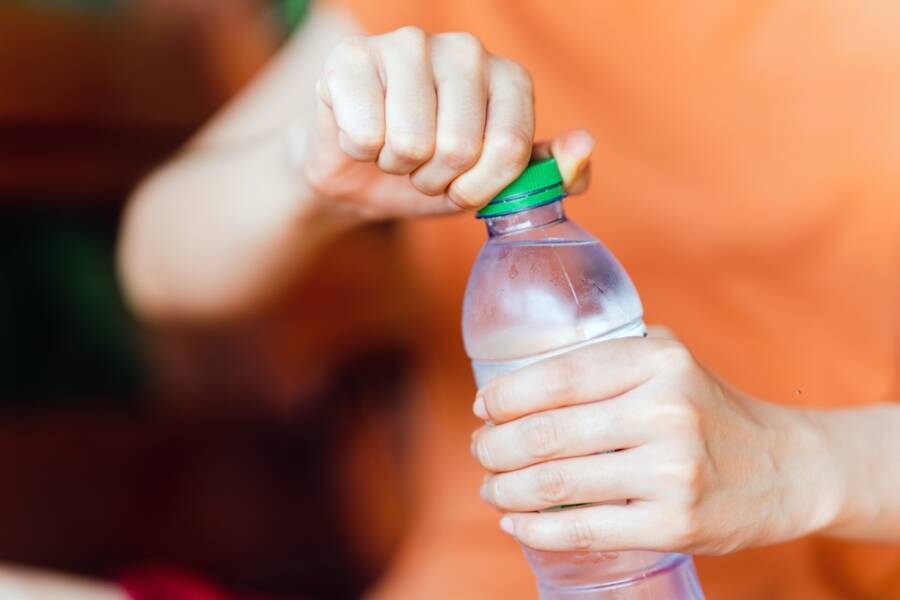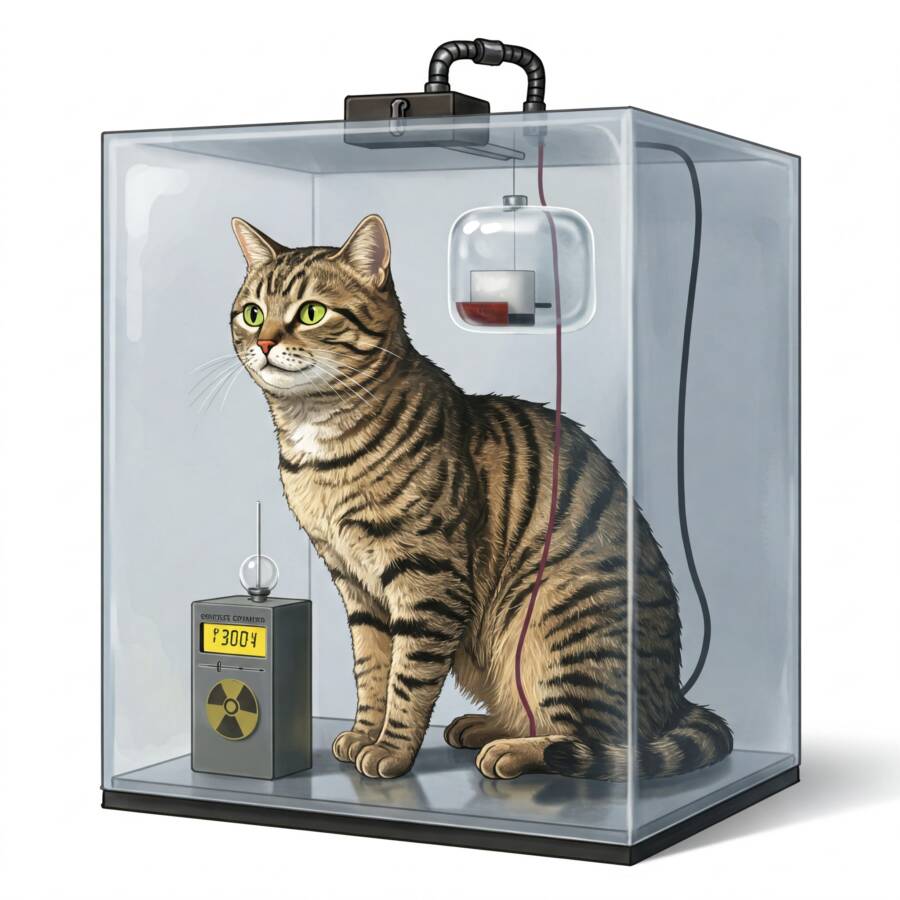Could Excess Water Intake Be More Dangerous Than You Think?
You always hear about the importance of drinking lots of water. What if I told you it can be extremely dangerous? Water is seen as a magical elixir, usually promoted by doctors, fitness experts, and wellness gurus. We’re always told that staying hydrated is the key to radiant skin and a happy lifestyle. But today, I am here to share with you an overlooked side of hydration. I want to talk about the hidden dangers of drinking too much water.
Our bodies are complex machines, and yes, a moderate amount of water is much needed and undeniably beneficial. However, excessive water consumption can easily lead to serious health issues.
Every cell in your body thrives in an environment with just the right mix of water and electrolytes, especially sodium. But you should know that when you flood your system with water, you dilute these crucial electrolytes, creating confusion for your body. This condition is called hyponatremia and is basically the result of washing away the salt your body needs. Even though the symptoms can be subtle at first, if you ignore them, they can easily escalate into more serious complications.
Don’t get me wrong! I am not here to tell you to stop drinking water. I truly believe in its benefits. However, it’s essential to understand that like everything in life, moderation is key. Let’s say that the challenge lies in respecting the fine line between hydration and overwhelming your system with too much water.

5 Dangers of drinking too much water
1. Water intoxication (Hyponatremia)
Have you ever heard about this health issue? Well, it occurs when the balance of electrolytes in the body is disrupted and is characterized by low levels of sodium in the blood. Its mild symptoms include vomiting and bloating, but the severe ones may lead to confusion and even coma.
When you drink far more water than your kidneys can excrete, your blood becomes too diluted, and sodium concentrations drop to unsafe levels. This condition, known as water intoxication can manifest symptoms like nausea, vomiting, bloating, and confusion.
The treatment for this kind of condition is simple. You’ll need to reduce your water intake. Too much water will make your body’s cells swell and also affect your brain which increases pressure on the organ and affects how it works. Once the brain is affected, you will identify changes in your movement and behavior. I don’t want to scare you, but water intoxication is also potentially fatal.
Understanding this condition will make us all rethink the popular words that more water leads to better health. In reality, our bodies know exactly how much water they need, and listening to the early signs of overconsumption is essential to preventing this silent, potentially deadly danger.

2. Kidney overload
As you already know, kidneys are the most important organs when it comes to filtering waste and maintaining fluid balance. However, don’t forget that they have their own limits. Usually, the kidneys regulate water levels by excreting the excess fluid in urine, but when you consume more water than your body requires, these organs can feel overwhelmed.
If the kidneys are forced to work process water at a rate that exceeds their capacity, over time all this chronic strain can disrupt the natural filtration process.
It’s true, that healthy kidneys can adjust to fluctuations in fluid intake, but a persistent overhydration may increase the electrolyte balance which also challenges renal function.
The long-term consequences of chronic kidney strain include the possibility of reduced filtration efficiency, increased possibility of developing kidney stones, and even permanent damage.
Yes, water is extremely important to protect your health and remove all those unwanted toxins, but keep in mind that an excess can work against you.
3. Neurological problems
It sounds crazy, right? Who would have thought that excess water consumption could lead to such serious conditions? Unfortunately, overhydrating can seriously affect our brain’s function, and one of the most severe dangers of overconsumption is cerebral edema.
When sodium levels drop, the balance that normally keeps water within blood vessels is disrupted, allowing water to seep into brain cells and create an immense strain.
Those who are dealing with cerebral edema usually feel confused and disoriented or deal with severe headaches. Sometimes even their vision can be altered. If the symptoms worsen it means that the condition is no longer kept under control. And, what’s really scary, is that these symptoms can develop rapidly, especially in cases where large quantities of water are ingested over a short period.
Cerebral edema highlights the critical need for balance in fluid intake. So, be cautious with the way you drink. Even though everyone is telling you how healthy is to stay hydrated, pay attention to what your body is trying to tell you.
To optimally function, the brain needs a safe, and most importantly, a stable environment. You should know that even minor deviations can disrupt its function and lead to life-threatening issues. This imbalance not only affects cognitive function but also places additional stress on neutral circuits responsible for coordinating movement, sensation, and viral autonomic functions.
4. Heart complications
The kidneys and the brain are not the only ones affected by overhydration.
When excessive water dilutes the blood and the electrolytes are disturbed, it can lead to significant changes in blood pressure and overall heart function.
The heart depends on a stable concentration of electrolytes like sodium and potassium to regulate its rhythm and maintain proper contractions. So, when these levels drop there is a sudden decrease in blood pressure, which is commonly called hypotension. It manifests as dizziness or even fainting spells.
In case you are particularly sensitive to changes in blood pressure, these fluctuations can be very dangerous. Moreover, the increased volume of water forces the heart to work harder to circulate blood throughout the body. In extreme cases, the combination of low blood pressure and increased heart workload can disrupt the normal flow of blood and significantly reduce the oxygen supply to vital organs, increasing the risk of cardiovascular events.
Keep in mind that for those with cardiovascular concerns, a cautious approach to hydration is warranted.
5. Gastrointestinal discomfort
Last but not least, overhydration can also lead to significant metabolic issues. For example, when you drink too much water the normal functioning of the digestive system is disrupted. The stomach and intestines are designed to process and absorb nutrients from food and rely on a precise balance of fluids and electrolytes to operate efficiently.
When you consume too much water, it can dilute digestive juices, affecting the stomach’s ability to break down food effectively. This dilution may lead to symptoms such as bloating, nausea, and stomach cramps. Over time, a persistently high water intake can interfere with the absorption of essential nutrients, leaving your body with fewer vitamins and minerals than it requires for optimal function.
The balance between nutrient absorption and fluid retention is very delicate. So, it’s extremely important to monitor our water intake and adopt a mindful approach to hydration.

What can you do to prevent overhydration?
Keep in mind that is extremely important to drink water as soon as you can when you feel thirsty. Let your thirst guide you and don’t force yourself to drink more water.
For example, there is this widespread belief that you should drink 8-ounce glasses of water a day for good health. But, in reality, this is just a myth, because there is no scientific research behind it.
We are all different and it depends on health conditions and levels of physical activity. However, The National Academy of Medicine estimates an optimal daily fluid intake is approximately 15 cups for healthy men and 11 cups for women.
Before leaving, here is a water bottle. It helps you stay hydrated, but it also tracks your water intake. The bottle can be easily found on Amazon and has great reviews. So, what are you waiting for? Check it out right now!
If you liked the article, you should read this one next: 7 Alcohol Myths You Still Believe — but Shouldn’t!














